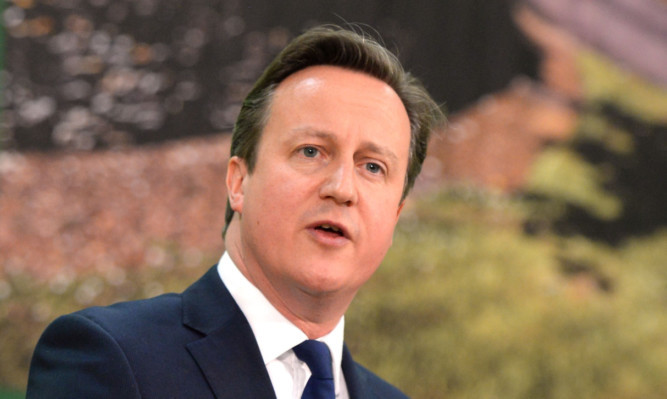The UK Government will “remain true” to its promise to implement the Smith Commission agreement on further devolution for Scotland, the Prime Minister has said ahead of his first meeting with Nicola Sturgeon following the election.
Ms Sturgeon will press David Cameron to go beyond the Smith package and hand even more powers to Hoyrood, arguing that it would be “inconceivable” for the UK Government to ignore the democratic will of Scottish people as expressed in the SNP’s election victory.
The Smith package, which would allow the Scottish Government to set rates and bands of income tax and give it control over £2.5 billion of welfare spending, will be taken forward in a new Scotland devolution bill in the first Queen’s speech, Mr Cameron said.
A Holyrood committee has already backed the Scottish Government’s view that the draft clauses for the bill, published by the UK Government before the election, do not reflect the full Smith Commission proposals.
In addition to the Smith package, the First Minister also wants powers over employment policy including the minimum wage, welfare, business taxes, National Insurance and equality policy to be devolved as a matter of priority.
Some Conservative politicians have urged Mr Cameron to consider offering a more radical package of devolution to Ms Sturgeon, including full fiscal autonomy – full control over tax and spending, but there are no indications that the Prime Minister intends to go beyond the proposals contained in the Smith Agreement.
Speaking ahead of his meeting with Ms Sturgeon, Mr Cameron said: “I am here today to underline my commitment to our United Kingdom and Scotland’s important place within it.
“That means remaining true to the promise we made to implement the all-party Smith agreement to make Scotland one of the most accountable and powerful devolved parliaments in the world.
“It also means recognising those things which unite us in these islands: the achievements we have made together, the institutions we have built together, our great social history, the common economic challenges we face today and the strength which comes from pulling together for the common good in the future. This is our One Nation agenda in action”.
He added: “Scotland has two governments and it is the duty of the First Minister and myself to respect each other’s roles and responsibilities, and to work together for the benefit of all the people of Scotland.
“As more powers are devolved to Scotland, it is time to move beyond the debate about processes and focus on those bread-and-butter issues that affect every family in our United Kingdom – jobs, homes, good schools and strong public services, and dignity and respect in retirement.
“These are the building blocks we need to provide a brighter future for people in every part of our country.”
Scottish Secretary David Mundell has said that the parliamentary process for the new Scotland Bill which will take the Smith proposals forward will provide “an opportunity for debate and discussion”.
The SNP could table amendments to that legislation but it would have to persuade a majority of MPs to support any changes.
Meanwhile, Holyrood’s Devolution Committee has already concluded that the draft clauses for the new bill should not be recommended for legislative consent by the Scottish Parliament in their current state.
The committee – which includes unionist and nationalist MSPs – urged the UK Government to undertake “proper consultation” and present redrafted proposals reflecting the full intent of Smith for Holyrood’s consent next year.
